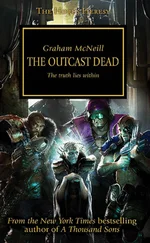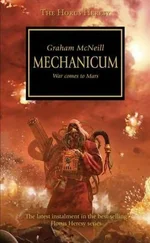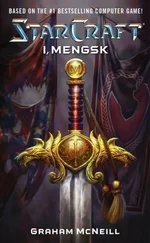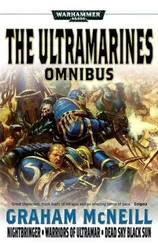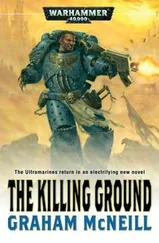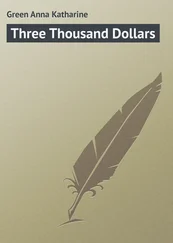Graham McNeill - A Thousand Sons
Здесь есть возможность читать онлайн «Graham McNeill - A Thousand Sons» весь текст электронной книги совершенно бесплатно (целиком полную версию без сокращений). В некоторых случаях можно слушать аудио, скачать через торрент в формате fb2 и присутствует краткое содержание. Жанр: Боевая Фантастика. Описание произведения, (предисловие) а так же отзывы посетителей доступны на портале библиотеки ЛибКат.
- Название:A Thousand Sons
- Автор:
- Жанр:
- Год:неизвестен
- ISBN:нет данных
- Рейтинг книги:3 / 5. Голосов: 1
-
Избранное:Добавить в избранное
- Отзывы:
-
Ваша оценка:
- 60
- 1
- 2
- 3
- 4
- 5
A Thousand Sons: краткое содержание, описание и аннотация
Предлагаем к чтению аннотацию, описание, краткое содержание или предисловие (зависит от того, что написал сам автор книги «A Thousand Sons»). Если вы не нашли необходимую информацию о книге — напишите в комментариях, мы постараемся отыскать её.
A Thousand Sons — читать онлайн бесплатно полную книгу (весь текст) целиком
Ниже представлен текст книги, разбитый по страницам. Система сохранения места последней прочитанной страницы, позволяет с удобством читать онлайн бесплатно книгу «A Thousand Sons», без необходимости каждый раз заново искать на чём Вы остановились. Поставьте закладку, и сможете в любой момент перейти на страницу, на которой закончили чтение.
Интервал:
Закладка:
humours with a thought, but without access to the aether, Hathor Maat had to do it like the rest of
them: with discipline, concentration and self-will.
The valley widened, and Ahriman saw a host of figures standing at the crest of the slope, like the
legendary warriors of Leonidas who fought and died at Thermopylae. Ahriman felt nothing for
them, no hatred and no fear. In the lower Enumerations he was beyond such considerations.
With their sunset-coloured robes, baked leather breastplates and long falarica, the Aghoru
warriors were the very image of the barbarian tribes of ancient Terra. The warriors were not facing
down the valley to repel invaders, but were instead focussed on something deeper in the valley and
beyond his sight.
Ahriman’s fingers flexed on the hide grip of his bolter. The warriors above turned at the sound
of the Sekhmet’s advance, and Ahriman saw they were all wearing masks of polished glass.
Expressionless and without life, they resembled the gold leaf corpse masks placed upon the faces of
ancient Mycenaean kings to conceal the decay of their features.
At the most recent conclave of the Rehahti, Magnus had had invited Yatiri, the leader of the
Aghoru tribes gathered at the Mountain, to speak with them. The proud chieftain stood in the centre
20
= Page 21 =
of Magnus’ austere pavilion, clad in saffron robes and wearing the ceremonial mirrormask of his
people. Yatiri carried a black-bladed falarica and a heqa staff, not unlike those carried by the
captains of the Thousand Sons. Though centuries of isolation had separated his people from the
Imperium, the regal Yatiri spoke with clarity and fluency as he requested they refrain from entering
the valley, explaining that it was a holy place to his people.
Holy. That was the word he had used.
Such a provocative word would have raised the hackles of many Astartes Legions, but the
Thousand Sons understood the original meaning of the term—uninjured, sound, healthy—and rose
above its connotations of divinity to recognise it for what it truly meant: a place free of
imperfection. Yatiri’s request had roused some suspicion among the Legion, but Magnus had given
his oath that the Thousand Sons would respect his wishes.
That request had been honoured until this moment.
The Aghoru parted as the Sekhmet approached the crest of the valley, the sharpened blades of
their falarica glittering in firelight. Ahriman had no fear of such weapons, but he had no wish to start
a fight he didn’t need to.
Ahriman marched towards the Aghoru, keeping his pace steady, and his gaze was lifted upwards
in awed amazement as the titanic guardians of the valley were revealed to his sight.
On Prospero, the cult temple of the Pyrae was a vast pyramid of silvered glass with an eternally
burning finial at its peak. Where the other cult temples of Tizca raised golden idols of their cult
symbols before their gates, the Pyrae boasted a battle-engine of the Titan legions.
Supplicants to the pyromancers approached along a brazier-lit processional of red marble
towards a mighty warlord Titan. Bearing the proud name Canis Vertex, the engine had once walked
beneath the banners of Legio Astorum, its carapace emblazoned with a faded black disc haloed by a
flaming blue corona.
Its princeps was killed and its moderati crushed when the engine fell during the bloody
campaigns of extermination waged in the middle years of the Great Crusade against the barbaric
greenskin of the Kamenka Troika. The Emperor had issued the writs of war, commanding the
Thousand Sons, Legio Astorum and a Lifehost of PanPac Eugenians to drive that savage race of
xenos from the three satellite planets of Kamenka Ulizarna, a world claimed by the Mechanicum of
Mars.
Ahriman remembered well the savagery of that war, the slaughter and relentless, grinding
attrition that left tens of thousands dead in its wake. Imperial forces had been victorious after two
years of fighting and earned a score of honours for the war banners.
Victory had been won, but the cost had been high. Eight hundred and seventy-three warriors of
the Thousand Sons had died, forcing Magnus so reduce his Legion from ten fellowships to the
Pesedjet, the nine fellowships of antiquity.
Of greater sorrow to Ahriman was the death of Apophis, Captain of the 5th Fellowship and his
oldest friend. Only now that Apophis was dead, was Ahriman able to use that word.
Canis Vertex had been brought down on the killing fields of Coriovallum in the last days of the
war by a gargantuan war machine of the greenskin, crudely built in the image of their warlike gods.
Defeat seemed inevitable until Magnus stood before the enemy colossus, wielding the power of the
aether like an ancient god of war.
Two giants, one mechanical, one a flesh and blood progeny of the Emperor, they had faced each
other across the burning ruins, and it seemed the battle’s conclusion could not have been more
foregone.
But Magnus raised his arms, his feathered cloak billowed by unseen storms, and the full fury of
the aether unmade the enemy war-engine in a hurricane of immaterial fire that tore the flesh of
reality asunder and shook the world to its very foundations.
21
= Page 22 =
All those who saw the giant primarch that day would take the sight of his battle with that
bloated, hateful, war machine to their graves, his power and majesty indelibly etched on their
memories like a scar. Ten thousand warriors bowed their heads to their saviour as he returned to
them across a field of the dead.
The Legio Astorum contingent had been destroyed, and Khalophis of the 6th Fellowship had
“honoured” their sacrifice by transporting Canis Vertex back to Prospero and setting it as a silent
guardian to the temple of the Pyrae. The raising of such a colossal sentinel was typical Pyrae
showmanship, but there was no doubting the impart made by the sight of the dead engine sheened in
the orange firelight of the temple.
Ahriman was no stranger to the impossible scale of the Mechanicum war engines, but he had
never seen anything to compare with the guardians of the valley.
Taller than Canis Vertex, the identical colossi that stood at the end of the valley were, like the
mountain they inhabited, enormous beyond imagining. Soaring, graceful and threatening, they were
mighty bipedal constructions that resembled an impossibly slender humanoid form. Crafted from
something that resembled porcelain or ceramic the colour of bone, they were manufactured as
though moulded from one enormous block.
Their heads were like sinuous helmets studded with glittering gems, and graceful spines flared
from their shoulders like angelic wings. These guardians were prepared for war. One arm ended in a
mighty fist, the other in an elongated, lance-like weapon, its slim barrel gracefully fluted and hung
with faded banners.
“Sweet Mother of the Abyss,” said Phosis T’kar at the sight of them.
Ahriman felt the calm he had established within him crumble when confronted by such powerful
icons of war. Like gods of battle, the towering creations rendered everything in the valley
inconsequential. He saw the same grace and aesthetic in these guardians as he had seen in the
valley’s formation. Whoever had willed this mountain into existence had also crafted these
guardians to watch over it.
“What are they?” asked Hathor Maat.
“I don’t know,” said Ahriman.
“Xenos Titans?”
“They have the look of eldar about them,” said Phosis T’kar.
Читать дальшеИнтервал:
Закладка:
Похожие книги на «A Thousand Sons»
Представляем Вашему вниманию похожие книги на «A Thousand Sons» списком для выбора. Мы отобрали схожую по названию и смыслу литературу в надежде предоставить читателям больше вариантов отыскать новые, интересные, ещё непрочитанные произведения.
Обсуждение, отзывы о книге «A Thousand Sons» и просто собственные мнения читателей. Оставьте ваши комментарии, напишите, что Вы думаете о произведении, его смысле или главных героях. Укажите что конкретно понравилось, а что нет, и почему Вы так считаете.



